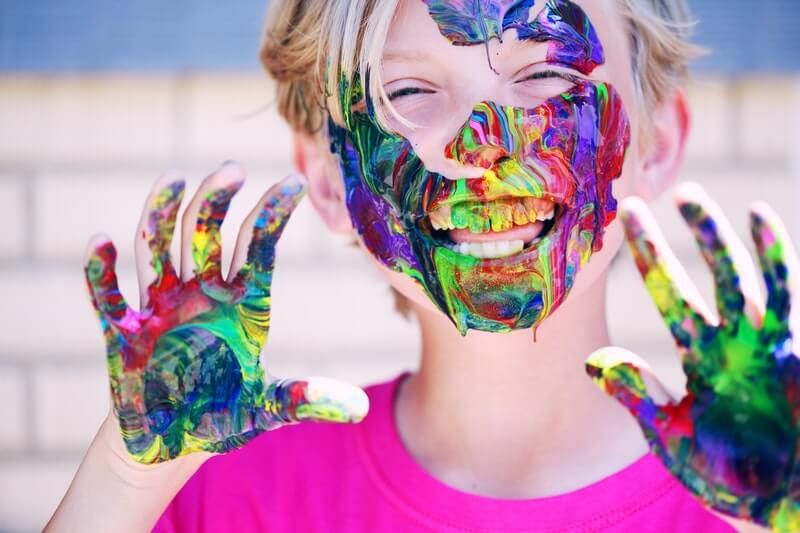Using Kling AI to Create Images (Text to Image)
The Text-to-Image feature of Kling AI is straightforward and powerful. Here’s a step-by-step guide to get you started:
Step 1: Access the AI Images Feature
- From the main dashboard, click on the “AI Images” tab.
Step 2: Enter Your Description (Prompt)
- In the “Prompt” box, type a description of the image you want to create. For example: “A white cat sitting on a rooftop under a moonlit sky.”
- Tip: The more detailed your description (colors, setting, mood), the closer the result will match your vision. You can use English or Vietnamese.
Step 3: Customize Settings
- Format: Choose between JPG or PNG.
- Aspect Ratio: Options include 1:1 (square), 16:9 (landscape), or 9:16 (portrait).
- Number of Images: Select how many images to generate (up to 9, depending on your credits).
Step 4: Generate and Download
- Hit the “Generate” button to start the process. It takes about 30 seconds to 1 minute for Kling AI to display the results.
- Pick your favorite image and click “Download” to save it to your device.
Real-Life Example
I tried entering: “A mystical forest with sunlight streaming through the canopy.” The result was a breathtaking, sharp image that perfectly captured my imagination!
[Image Suggestion: Insert a vibrant image of a mystical forest with sunlight rays piercing through the trees. Caption: “A stunning forest scene created by Kling AI.”]
Using Kling AI to Create Videos
Kling AI offers two video creation methods: Text to Video (from text) and Image to Video (from an image). Here’s how to use both.
1. Creating Videos from Text (Text to Video)
Step 1: Select Text to Video
- On the dashboard, go to the “Videos” tab and click “Text to Video”.
Step 2: Enter Your Description (Prompt)
- In the “Prompt” field, describe the video you want in detail. For example: “A horse galloping across a green meadow under a sunset sky.”
- Add anything you don’t want (e.g., blurry visuals) in the “Negative Prompt” section.
Step 3: Adjust Settings
- Creativity Level: Slide between 0.5-0.6 for a balance of creativity and accuracy.
- Video Length: Free users are limited to 5 seconds; paid plans extend up to 2 minutes.
- Aspect Ratio: Pick 16:9, 9:16, or 1:1.
- Camera Movement: Options include Zoom, Tilt, Horizontal, Vertical, etc.
Step 4: Generate and Download
- Click “Generate”. Video processing takes about 6-7 minutes, depending on complexity.
- Once done, preview the video and hit “Download” to save it.
[Image Suggestion: Insert a still frame of a horse galloping across a meadow at sunset. Caption: “A dynamic video frame generated from text with Kling AI.”]
2. Creating Videos from Images (Image to Video)
Step 1: Select Image to Video
- In the “Videos” tab, choose “Image to Video”.
Step 2: Upload an Image
- Click “Click/Drop/Paste” to upload an image from your device or paste it from your clipboard.
Step 3: Describe the Motion
- In the “Prompt” box, explain how you want the image to move. For example: “The cat in the image jumps onto a table.”
- Customize settings like creativity level and camera movement as needed.
Step 4: Generate and Download
- Press “Generate”, wait for processing, and download the video if you’re satisfied.
Real-Life Example
I uploaded a photo of a bird and typed: “The bird flies across a blue sky.” The output was a smooth, natural-looking short video!
[Image Suggestion: Insert a side-by-side comparison of the uploaded bird photo and a still from the generated video. Caption: “From static image to animated flight with Kling AI.”]
Tips for Getting the Most Out of Kling AI
- Be Specific: Detailed prompts yield better results.
- Combine Text and Images: Use both text and reference images for higher accuracy.
- Maximize Free Credits: Use the daily 66 credits to experiment with ideas.
- Use Negative Prompts: Exclude unwanted elements like “blurry” or “low quality.”
- Be Patient: Video generation can take longer during peak server times—wait for the best outcome.
[Image Suggestion: Insert a screenshot of the Kling AI interface showing the prompt input and settings. Caption: “A peek at Kling AI’s user-friendly dashboard.”]
Pros and Cons of Kling AI
Pros
- High Quality: Crisp images and fluid video motion.
- User-Friendly: Intuitive interface, no advanced skills required.
- Free Tier: Great for testing before committing to a paid plan.
Cons
- Free Limits: Videos capped at 5 seconds, limited credits.
- Processing Time: Video creation takes longer than images.
- Regional Restrictions: Some advanced features require a Chinese phone number.
Final Thoughts
Kling AI is an incredible tool for turning your creative ideas into reality, whether it’s vibrant images or professional-grade videos. With this guide, you’re ready to dive in and craft unique content effortlessly. Give it a try today and let me know how it goes!

